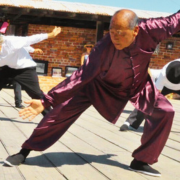LGBTQ+ Chicagoans outraged as city imposes new limits on this year’s Pride parade
Chicago officials going to reduce the scale of this year’s Pride Parade even more after already announcing an approximately 37% reduction in floats and performances.
The Chicago Police Department (CPD) recently revealed a proposal to reduce the length of the parade by a few blocks, which would eliminate the need for 48 officer posts, Block Club Chicago reported. The possibility has angered many in the LGBTQ+ community.
“We were obviously not thrilled to hear that,” said Jin-Soo Huh, chair of the LGBTQ+ advisory council to the mayor. “Even though it is only a proposal, our message is that this is a proposal that should have been done in consultation with the community. We’re still calling on the Mayor’s Office to restore the Pride Parade [to its original form].”
Huh said he had not even been told about the reduced number of entries allowed in the parade and had to learn about it from a Block Club report.
“That really caught us off guard,” he said. “As the mayor’s council, we hope that anything major like this affecting the LGBTQ+ community is brought to our attention and that we’re consulted about it. That’s our main function.”
The Chicago Pride Parade is one of the largest in the country. The changes—including an 11 a.m. start time instead of the usual noon—are reportedly due to city officials’ increased efforts to maintain safety and manage overall logistics. It is not known whether the changes are related to an increased need for security based on the current rise in attacks on LGBTQ+ rights across the country.
Regardless of the reasons, Chicago Mayor Brandon Johnson’s (D) LGBTQ+ Advisory Council continues to fight to maintain the parade’s original integrity. Last week–before CPD’s proposal to shorten the route was announced–14 of 20 members signed on to an open letter asking the city to lift the 125-entry cap.
“The city of Chicago and the state of Illinois have made great strides to advance the rights and protections of LGBTQ+ people,” the council members said. “We urge the city of Chicago to work towards having the largest, most visible, and most powerful Pride Parade in the country, especially at a time when LGBTQ+ communities, and in particular trans youth, are facing unprecedented and life-threatening attacks.”
“We ask the mayor and the city of Chicago to lean into their values of equity and transparency and work with the parade organizers, the advisory council and the supporting organizations to restore the Pride Parade and support the LGBTQ+ community in Chicago and beyond.”
However, according to the Windy City Times, the groups support the 11 a.m. start time, which is needed to better accommodate CPD shift changes.
The letter also advocated for other parades held in the city throughout the year, asking officials to engage the community in any decision relating to changes to these beloved traditions. Several local organizations, in addition to the council members, signed on to the letter, including Equality Illinois, Brave Space Alliance, Pride Action Tank, Howard Brown Health, and the parade organizers.











